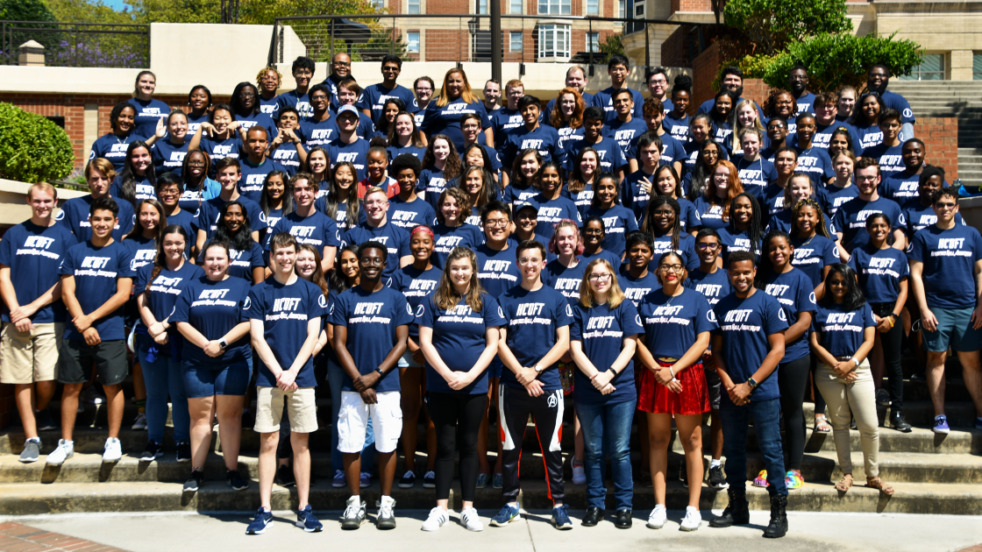As the second-largest student organization on campus, the Residence Hall Association (RHA) affects a large proportion of the student body, but what is it and how does it help individual residents?
Generally, RHA is a student-run organization that supports and advocates for all residents in on-campus housing. But to get a greater scope of this organization, the Technique sat down with three members of the RHA executive board about what they do on a daily basis to improve residence life.
“We oversee all 48 residence halls on campus … that are divided up into, this year, 13 communities that spans the over 8,000 beds and over 8,000 residents that live on campus,” said Bryan Gomez, third-year NEUR/BCHM and RHA Director of Programming.
Within RHA, individual hall councils handle policies and allocating budgets for their local community. On a wider campus level, RHA funds events, plans campus-wide programming and conducts general housing advocacy. Gomez stressed the importance of having legislation at a local level and more broadly at a campus level.
Andrew Norlin, second-year BME and RHA Director of Development, said that RHA’s unofficial tagline is that “RHA builds community in residence halls through programming, advocacy and leadership development.”
Whether a hall council puts on a small program or an upper-level board member negotiates with a campus services executive, RHA is determined to improve the lives of all on-campus residents.
“It’s not necessarily like you see RHA every day right in front of your face working and you’re like ‘Wow, RHA is so great,’ but I would say it’s a lot of things kind of behind the scenes making residence life more enjoyable and better on campus,” Norlin said.
Sara Bowles, fourth-year CHBE and Executive President of RHA, described her role overseeing the bureaucracy of RHA and communicating with housing officials.
“I run the legislative council, which is where we do resolutions to change our governing documents and where we give funding to other organizations for their own programs,” Bowles said.
“Besides that, I also have regularly standing meetings with Dr. Cotton, who is one of the head honchos of housing.”
Alongside the executive and legislative branches which handle proposals, spending and operations, RHA also includes a judicial branch that regulates internal elections and the Student Conduct Board.
Bowles described some of her favorite programs RHA has held for their residents. One favorite included ordering customized Coca-Cola bottles for students, and another allowed students to interact through a beagles and bagels event catered by Panera.
“Hopefully we’ll be able to do stuff like that next year when we can actually do stuff safely in person,” Bowles said, while admitting about the constraints the ongoing pandemic has put on the organization.
The board members stressed that despite the challenges of COVID-19, RHA has still been busy this year trying to fulfill their duties to residents.
“I’m working on trying to actually get the Menstrual Product Program in residence halls,” Bowles said when asked about efforts she would like to further this semester. The Menstrual Product Program is a joint effort between RHA and SGA to provide free feminine hygiene products around campus.
Norlin and Gomez also mentioned how RHA has been focused on internal efforts and advocacy this semester rather than trying to put on online programming. They hope this year will give them time to polish their inner workings to provide stronger programs when in-person events are possible again.
To get involved in RHA, Norlin said that attending hall council meetings is the easiest way to start. From there, interested could run for RHA executive board or other upper-level positions.
“With RHA we have all these possibilities that open the door for our residents to get involved and make their residential experience their own,” Norlin said.
The board members all agreed that RHA helps to enhance on-campus living for any resident, whether they aware of it it or not.
To find out when your hall council is meeting, visit rha.gtorg.gatech.edu
